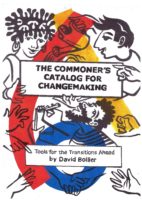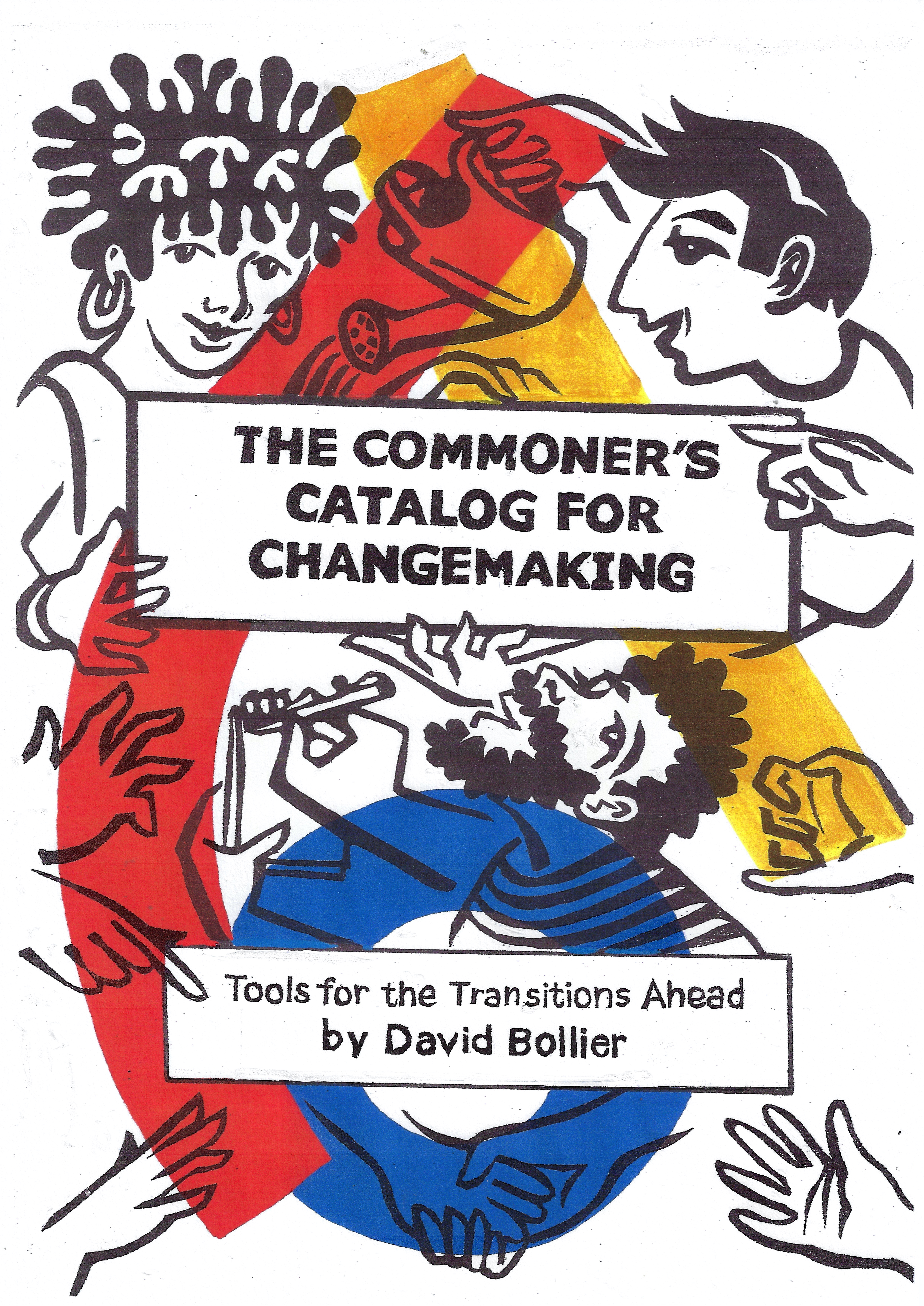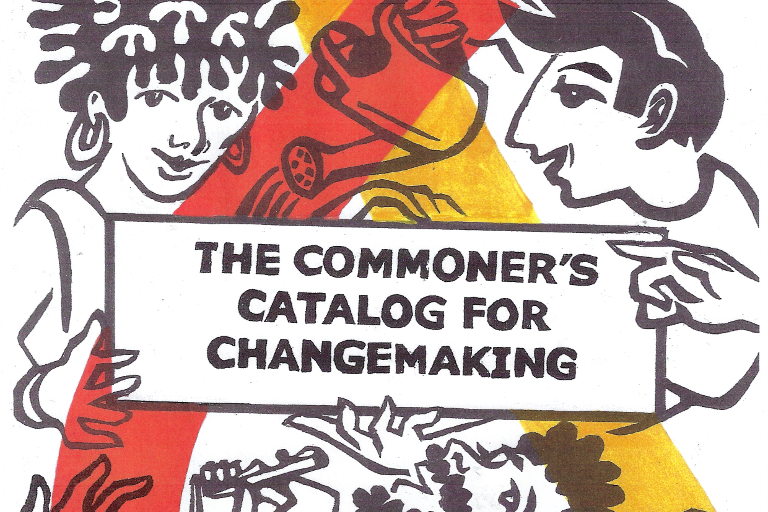 It’s been more a year and a half in the making, but I’m pleased to announce the release of my new book, The Commoner’s Catalog for Changemaking: Tools for the Transitions Ahead!
It’s been more a year and a half in the making, but I’m pleased to announce the release of my new book, The Commoner’s Catalog for Changemaking: Tools for the Transitions Ahead!
Inspired by the format and sensibility of The Whole Earth Catalog of the early 1970s (subtitle: “access to tools”), this Catalog has a similar goal: to help people can build a new world, on their own terms, against the grain of a dominant culture that cannot yet see or understand the rising world of commoning.
The Commoner’s Catalog for Changemaking was born of a simple realization: The world we have inherited is no longer working. But the good news is….Commoners are building a new world of possibilities right now. There are scores of system-change projects a-borning, but mainstream politics and media regards most of them as too small, local, and trivial to matter….and commoners themselves often do not have a larger sense of the whole of which they are a part. The Commoner’s Catalog seeks to remedy this problem.
The Catalog explains the grand, transformational power of social collaboration – in agricultural commons and digital spaces, in care collectives and gift economies, in urban settings and finance, among many other realms.
The Catalog’s many profiles and stories are loosely grouped in 25 thematic sections spanning 114 artfully designed pages. There are sections on water, land, rethinking economics, law and the commons, the more-than-human world, urban commons, peer production, artistic commons, and many others.
I was thrilled when a French commoner-friend received an advance copy and exclaimed, “This is super-cool!” He was responding to the great cover art that illustrator Hugh Dunford Wood made to show the joy and excitement of commoning.
But he also loved the beautiful book design by Angela Lorenzo and the vivid diversity of projects described (great research support from Cameron Conner). I share my friend’s reaction. The Commonsverse is a surprising, hopeful world and, and — when seen in its eclectic glory — amazingly cool.
The Schumacher Center for a New Economics is the publisher of The Commoner’s Catalog, and Chelsea Green Publishing is the distributor. The book was released this week in the US. Copies should be available in the United Kingdom and Europe by mid-February.
To help maximize its reach and impact — and ensure open access — I have posted The Commoner’s Catalog online as a free “flipbook,” licensed under a Creative Commons Attribution-NonCommercial-ShareAlike license. You can read it, and find weblinks for buying it, at commonerscatalog.org.
As an adolescent, I was rocked by The Whole Earth Catalog because it showcased dozens of gritty, obscure, back-to-the-earth experiments. It was also empowering. It said in effect, “You can be more than a passive consumer or anonymous onlooker. You can do cool and significant things yourself, and bring about serious change by heeding your own intuitions and mobilizing your talents. Here’s what other ordinary people are already doing, right now!”
And so, in this new Catalog, I have tried to call attention to notable peer-driven projects, organizations, websites, books, movements, and individuals. They are a cultural vanguard that more people need to know about. After all, these initiatives are going to help us get through the transitions being driven by unsustainable and unjust market extractivism, relentless economic growth, and climate change.
We may know about one or another example, but it’s the broad sweep of such projects that is so amazing.Your entire perspective changes when you can see how community land trusts can open up land to more eco-minded farming and more affordable housing — how open source platforms and platform cooperatives are empowering workers and users — how Indigenous models of land and water stewardship offer guidance to us — and how artistic commons are helping artists reclaim control of their creativity and livelihoods.
I like to quote the Belgian designer Thomas Lommée, who declared,
“The next big thing will be a lot of small things.”
This should be the rallying cry for remaking politics and government, whose fragile, centralized power is increasingly dysfunctional, unjust, cruel, and incapable of dealing with distributed complexity.
If you’re already a commoner, or know of folks who would love to learn more, please help spread the word about The Commoner’s Catalog. We need to hoist up some new visions of change beyond those declared by the market/state, start some new discussions, find each other, begin new collaborations, and take the commons to a higher level.






